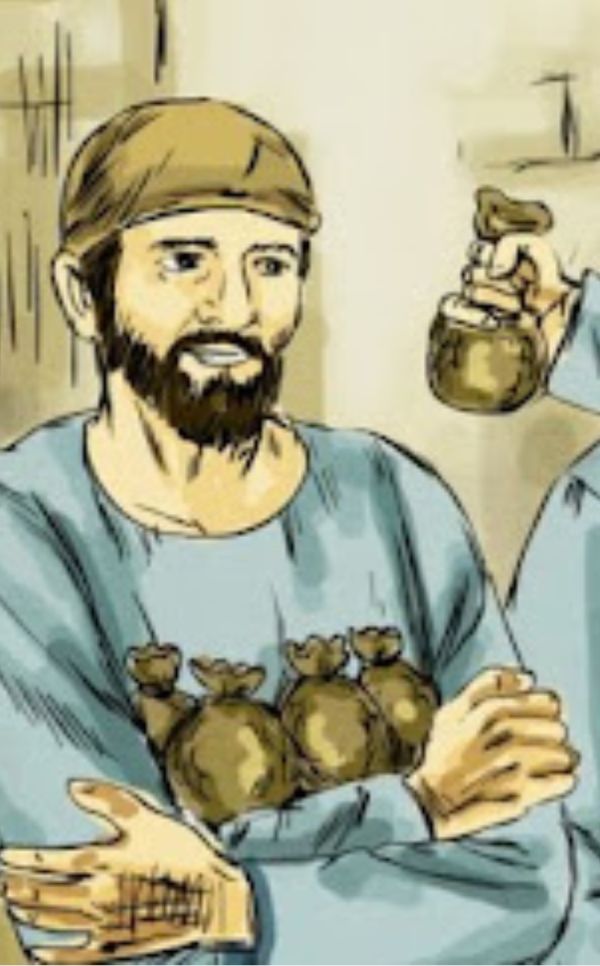Talents - Gifts of the new Kingdom
(Mt 25:14-30)
Mt tells this parable because some converted Jews of his communities have difficulty unlocking and evolving.
A competition arises between them that concerns the importance of ecclesial positions. It’s the true evangelical sense of «talents according to capacity» (v.15).
We all receive some accent of the Kingdom, "goods" to be multiplied by transmitting; for example, the Word of God.
Unique gift, but not uncommon: immense prosperity with extraordinary life-propulsive virtues... for each and every one.
Thus the spirit of service and sharing; the attitude to discernment and appreciation of unrepeatable uniquenesses, and much more.
The very idea of the ancient God as lawgiver and judge (vv.24-25) induced believers not to grow or transmit - rather to shut themselves up and move away from the Father’s plan.
The Lord strongly reiterates that a deformed idea of ‘Heaven at points’ can negatively affect the bearing lines of personality, and ruin people’s existence.
Even in later history this happened, when the naive masses were “educated” to perceive Freedom as guilt and the risk of Love a danger of sin.
Instead, the Lord wants to create Family, where no one is alarmed or held in check, nor blocked and potted.
Even the little that everyone has in dowry can be invested - through a contribution to be made, available to all.
This is what happens in the community that values us: the ministerial Church [«bank» of v.27] that projects and infinitely expands the resources, the broken Bread, the "goods" of the Kingdom of God.
What promotes people and reveals God’s Presence is personal and unique, yet it must not remain as rare.
Everyone has an opportunity for apostolate, his particular friendship’s attitude, and his skills... they are territories and energies to be explored without limits, so that they are shared, made wiser and propulsive.
In this way, whoever updates himself, confronts himself, is interested and makes a contribution, sees his own human and spiritual wealth grow and flourish.
Conversely, no one will be surprised that the rearguard or abstract and disembodied situations undergo further declines - finally they perish without leaving regrets (vv.27-30).
In these catecheses of chapter 25, the evangelist Mt tries to make his communities understand and help, remembering that Jesus himself was not under escort, but an involved, willing figure.
He did not want to limit himself to fighting for an appreciable and necessary legal change - but still staying at a safe distance.
In fact, he acted in a laborious, «crafted» way (FT n.217); without placing anything in safe, out of fear.
He was not limited to easy contrasts and grand ex cathedra proclamations, which would not have affected anything.
Did he have alternatives?
Of course: do not move anything, do not guard the minimums, do not protect them, limit himself, keep his mouth closed or open it only to flatter the powerful, the established and well-introduced.
Giving up fighting and neglecting to take winding routes, he would have no problems.
But also for us: the downside and safe game atrophies personal and social life, does not grow a new Kingdom - it loses it.
[Saturday 21st wk. in O.T. August 31, 2024]












